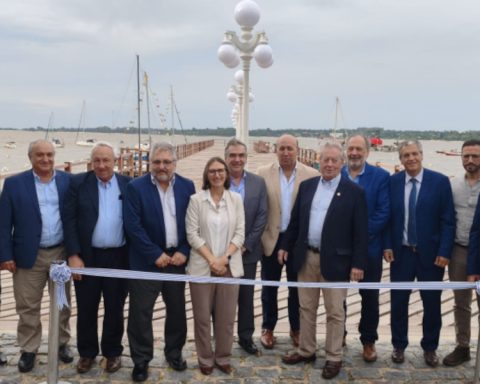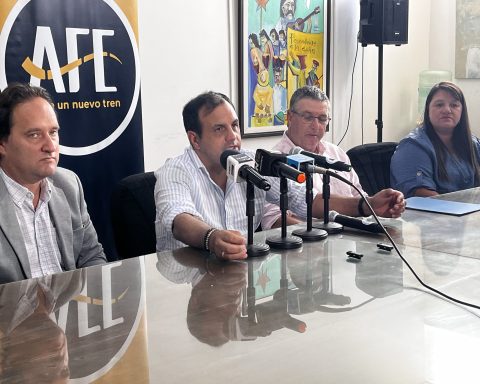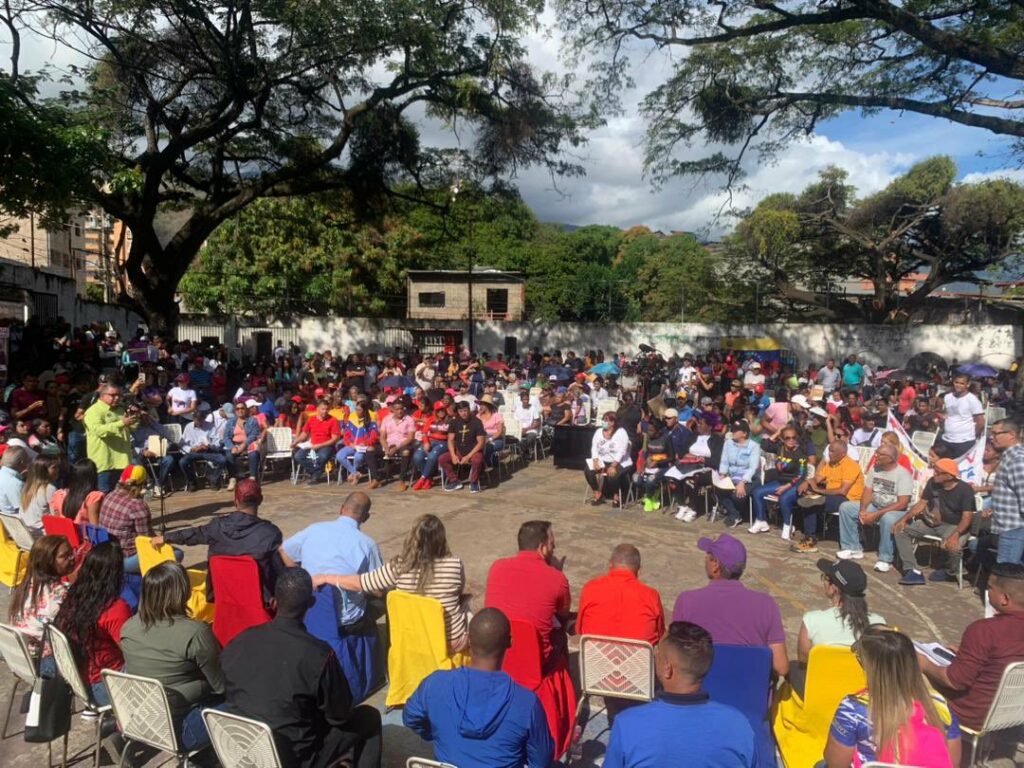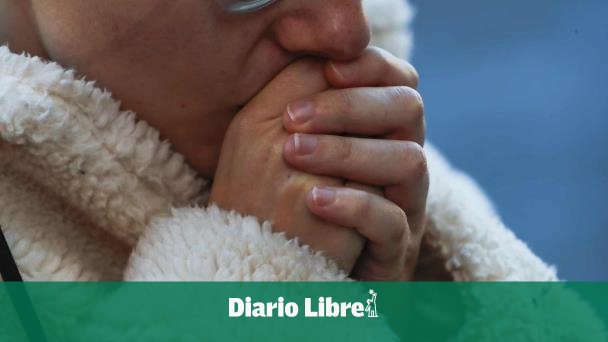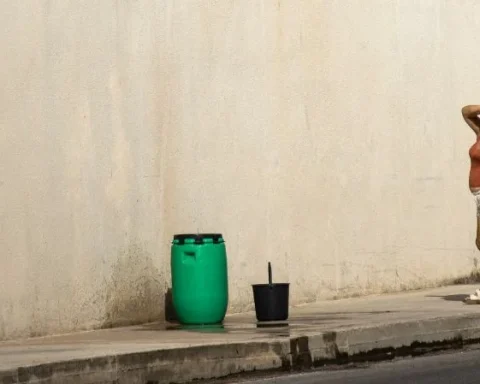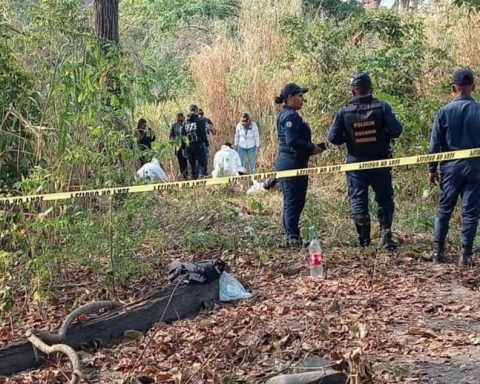When, at the request of the Minister of the Interior, Luis Alberto Heber, the inter-party table for security was established, each political party was asked to designate a delegate with a technical profile. In the first meeting —which the Broad Front did not attend—, the only delegate known to the public opinion was criminal lawyer Andrés Ojeda, who attended on behalf of the Colorado Party.
This generated an internal dispute that ended up detonating last week, after the Ministry of the Interior announced a new plan to contain homicides that will be financed by the IDB and that, as reported The Observer— In one of its variants, it will recruit rehabilitated ex-delinquents to act as territorial agents in the neighborhoods. This is because the project leader is the ministerial adviser Diego Sanjurjo, also from Colorado and from the same sector as Ojeda: Ciudadanos.
When Heber recently convened the inter-party table for security, the former prosecutor and current deputy Gustavo Zubía told the party’s general secretary, Julio María Sanguinetti, his intention to be the one to attend on behalf of the party, Zubía himself told The Observer. However, Sanguinetti told him that the one chosen to go would be Ojeda.
The penalist had been summoned to attend by the leader of his sector, Adrián Peña, according to reconstructed The Observer with party sources. Zubía argues that his sector —Tercera Vía— is a minority within the party.
Thus, Sanjurjo and Ojeda (who share a sector) are part of the table that will refine the proposals that the IDB will finance. But before Heber’s announcement on Desayunos Informales (Channel 12) of the proposal, Zubía harshly criticized it. Although the minister promotes the proposal, it is an idea that Sanjurjo brought to the table. Besides, it wasn’t the first time.
The idea of promoting a program similar to Cure Violence was part of the government program of the Colorado Party, for which Zubía was a pre-candidate for the presidency. “This is the first time that I find out. If it is in the government program, I did not see it. It must correspond to an initiative that other people had. I have an idea contrary to that evangelization of people,” said the former prosecutor.
Despite this, he has not spoken with the ministerial adviser on the subject. “I have not read all the government programs nor am I interested, nor do I read Sanjurjo, although we have a very good relationship when we talk. Where is the background, the knowledge, the experience to issue an opinion on these issues? If it is not the subject of Heber and it is the subject of Sanjurjo, so Sanjurjo is dictating the guidelines on issues, nothing more and nothing less, than in the politics of violence and homicides that are cramping us at this time,” he criticized.
In addition, he regretted that he intends to implement policies that, in his opinion, are aligned with those of the Broad Front. “This reminds me of the ideas of (Gustavo) Leal and (Eduardo) Bonomi. They are programs that dream of rehabilitation by talking, very characteristic of the left and Sanjurjo himself said it, that various leftist movements around the world promote this type of program. Yes, it is true, it is the utopia program that did not give any results in the Broad Front governments,” he added.
Asked about it, Sanjurjo told The Observer that he preferred not to make further comments, although he clarified: “There must be loyalty and respect between politicians from the coalition and from the same party. There are people who criticize in order to receive attention. They live on that, because proposals do not have and somehow have to appear It is irrelevant to me if something is supposedly left or right, what matters to me is that it works and helps save lives. These programs have been very successful in other countries in the region and have enormous potential for our country.”
“Indeed he was in the government program, but it is natural that he does not know because he did not participate in its preparation. I assume that he had nothing to contribute,” he concluded.
Zubía’s criticisms of the program center on the lack of resources to carry it out “seriously” and he wondered who today can say if an inmate is rehabilitated or not. “I am seeing that this change of course that we had in the LUC has changed and we are trying to ingratiate ourselves with the positions of the left, which seems to me a very serious error (…) Within the party there are very clear different orientations. In this and on other issues”, he valued.
Finally, he indicated that the course to follow —in his opinion— should be “to take fundamental measures that require a much tougher position, not a position of heidi“. In this sense, he listed: “The control of prisons, the increase in police activity, a specific statute for prison police officers (create a separate division)”. “In this situation, talk about evangelizing drug traffickers so that they They are good people, it seems to me something quite out of place, beyond how beautiful it is for the news. That does not mean that the management of the ministry in other types of crimes does not stand out, “he closed.
What does Cure Violence propose?
His program consisted of recruiting people who knew firsthand the thick environment of crime (former members of criminal groups) and entrusting them with detecting and interrupting possible acts of violence. Although the idea is not to emulate Slutkin’s program, they do have intentions of formulating their own new program that takes up this spirit.
The proposals of the National Party, Colorado Party and Cabildo Abierto
The main proposal that the Colorado Party sent in the document that Sanjurjo will analyze is the creation of Comprehensive Care Centers (CAI) and a Ministry of Justice. This idea was developed in Ernesto Talvi’s government program and consists of installing these centers in vulnerable areas where there are representatives of different divisions of the State in the same place. In this sense, it will be an administrative unit that allows procedures to be carried out quickly and without people losing contact with the State. In the government program, they cited the importance of having a representative from the Ministry of Social Development (Mides), one from the Ministry of Housing and Territorial Planning (MVOT) and another from the National Institute of Employment and Vocational Training (Inefop).
In turn, they insist on the idea of creating a Ministry of Justice. Thus, this new ministry could take charge of responsibilities that today are under the aegis of the Ministry of Education and Culture and the Ministry of the Interior and that the colorados understand that they are not naturally within their competence.
For its part, Cabildo Abierto based its proposals on two main premises. The first, the strengthening of police departments. They understand that increasing the powers of the neighborhood police stations will generate greater and better coordination with other local actors. Secondly, they promoted concrete solutions regarding the resocialization of ex-inmates and addiction treatment, which they understand to be crucial for rehabilitation.
The National Party was the one that made the most extensive proposal and covers the greatest variety of points. All of them are being studied by the advisor Sanjurjo, who has already had in his possession for more than 20 days those delivered by the Broad Front, whose delegate is the former director of Security and Coexistence, Gustavo Leal.

